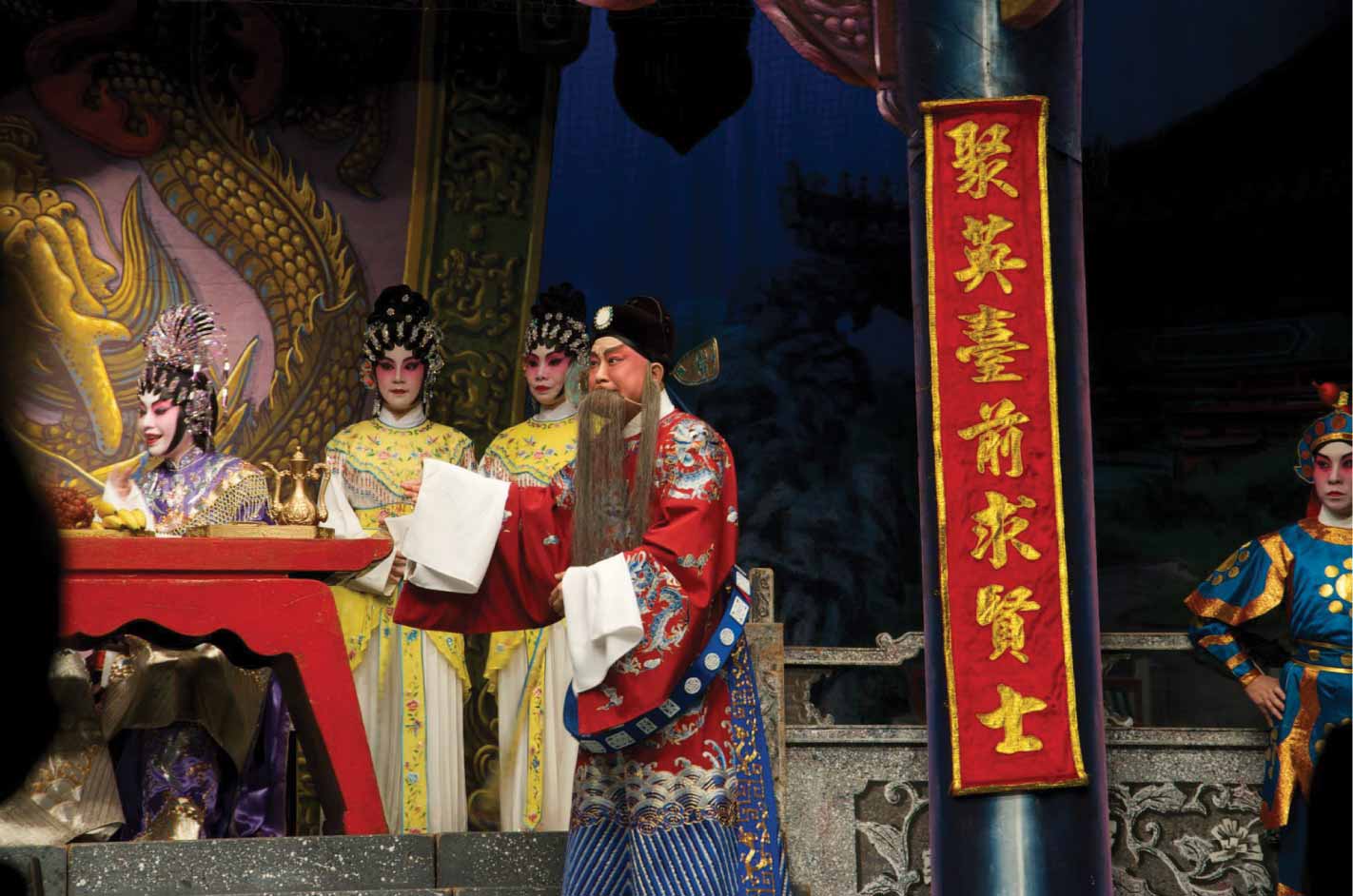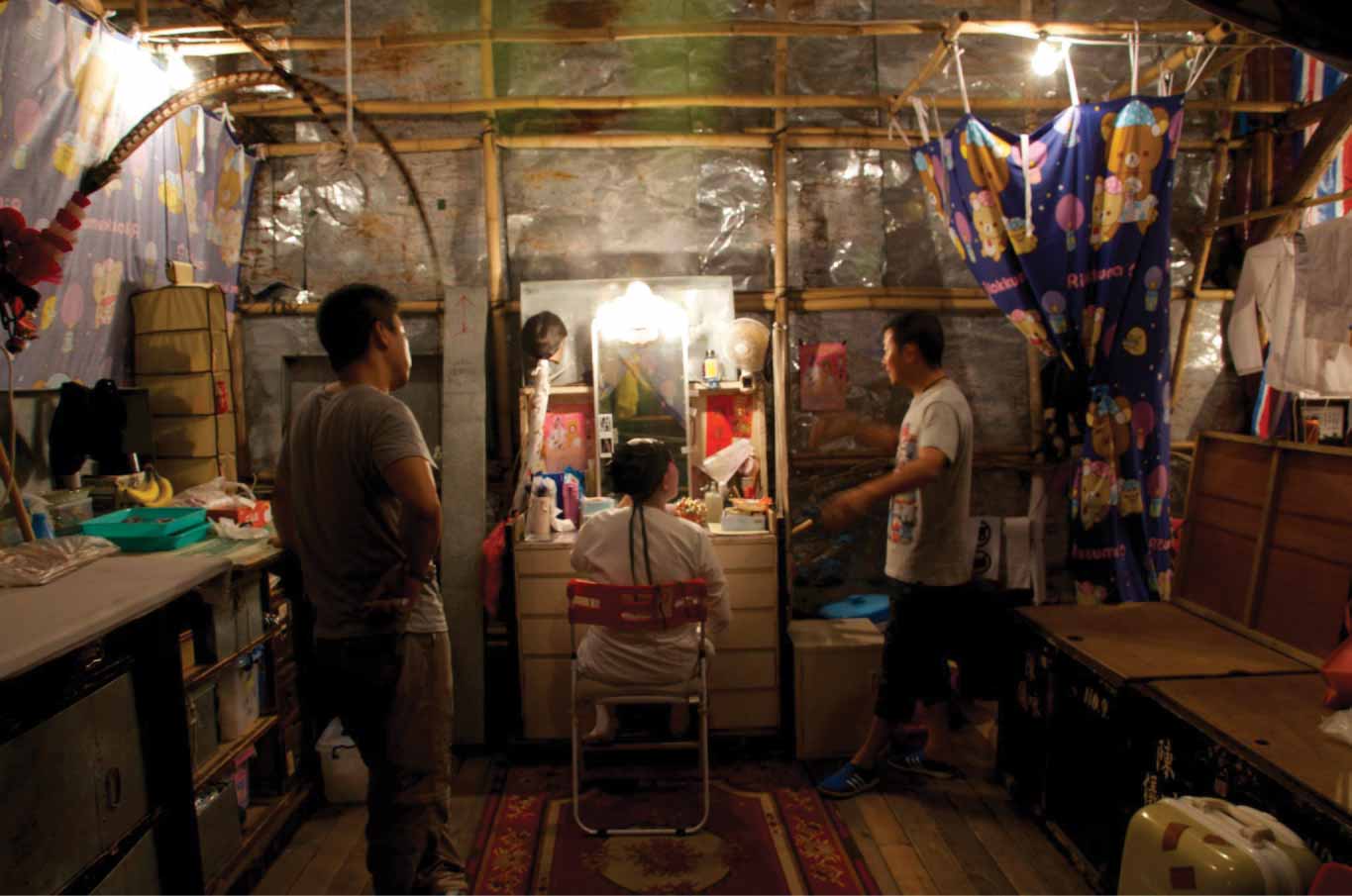NEWS & EVENTS > INTERVIEW
"A nation's culture resides in the hearts and in the soul of its people"
-Mahatma Ghandi
Ms. Wang Kit Ching- Cantonese Opera Actress
December 2015
December 2015

Mr. Liu Kwok Sum, performing at the Tin Hau Festival, Lamma Island. Photo by Joanne Ng, 2015.
Most touching moment was when we put on the production of Once again at the foot of Victoria Peak in 2014. At that point, Karen’s Meadow Cantonese Opera Studio by (the studio that was established by Wang Kit Ching in 2006) had three other productions under its belt. I was quite anxious about doing the show, since it is set in more modern times. It took me half a year to make the decision to go ahead with the production. At that time my father had been admitted to the hospital, and I was very worried about his situation. Of course he is fine now, but back then, I was reflecting on the fact that maybe this whole time I had been too focused on my own things, and had never done much for my parents. So when my father was staying at the hospital I really wanted to give him a present.
Once again at the foot of Victoria Peak is a nostalgic film. My family has the movie’s soundtrack, and all of us know how to sing the main song of the film. For our family, that movie holds special memories. So I went to many of my good friends to ask them to help with adapting this movie to the stage, and there were all very willing to use their precious time to work on this production together. Because this production was somewhat different from a traditional Cantonese opera, it took us more time to rehearse. While we usually would only need two full rehearsals for a Cantonese opera show, for this one we rehearsed more than ten times. My two partners and I discussed for a long time how to adapt the easygoing mood of the movie to our script, and how to bring out the innate qualities of the film while ensuring that it appeals to an audience who is used to Cantonese Opera (e.g. applying the seven pillars of Cantonese Opera), and how to rearrange the songs.
We devoted so many hours to this. At the moment of the curtain call, I just felt so very touched and grateful. My friends had come together and helped me to achieve my dream, and in addition, it was a sold-out show each performance. When I started this, I was worried about the reaction the audience would have towards the production, but we had really positive reviews from the audience. It was all very much worth it in the end.
What unique ideas or new concepts do you feel that your generation brings to Cantonese opera? Do you think that Cantonese opera from the past and Cantonese opera nowadays have a different set of aesthetic standards?
I think that in a way, requirements now are higher than before. In the past, you could say that Cantonese Opera actors were celebrities—not just within the world of opera, but in society in general. Cantonese Opera was “mainstream,” and there were film adaptations. Watching Cantonese Opera was considered a common form of entertainment. The actors of the past, the scope of their acting was more wide-ranging, and the level of their skills were higher than ours. With their acting skills, they bring a certain level of tension that is different from ours.
Audiences nowadays are more exposed to Beijing opera and Kunqu opera, and with exposure to more variety they have higher expectations for entertainment. Also, training is different in mainland China and Hong Kong. If you were to receive Cantonese opera training in mainland China, you would start full-time at the age of six or seven but in Hong Kong, the only training available to you at that age would be extracurricular interest classes, so the actors trained in the two places are on two different levels. Because the mainland China troupes rehearse so much, their martial stage is neater and more orderly. On the other hand, Hong Kong troupes definitely have less rehearsal time. The mainland troupes are supported by the government and also have a steady monthly pay, so they will rehearse more. Whereas in Hong Kong, we only get paid per performance. Our situations are therefore very different.
This phenomenon of where you have this side-by-side comparison between mainland and Hong Kong troupes leads to higher audience expectations here in Hong Kong, as well as performers placing more pressure on themselves to do better. For example, we who play the “belle” characters will focus on the flowing sleeves (literally “water sleeves”) of the costumes, our posturing, and paying particular attention to improving aesthetics. I think that this is a good thing, because it spurs Cantonese opera actors to not just merely act, but to consider how to enrich our movements and postures on the stage, while at the same time, striking a balance, since more movements doesn’t necessarily mean better, and we have to consider if they fit the story line and the role.
Related links:

